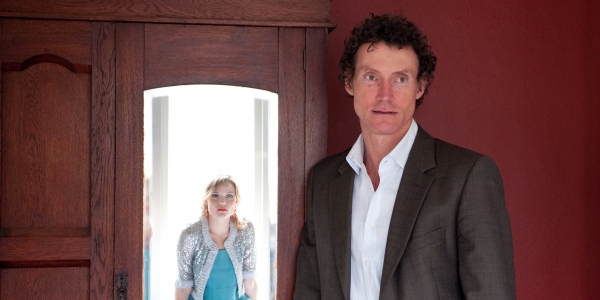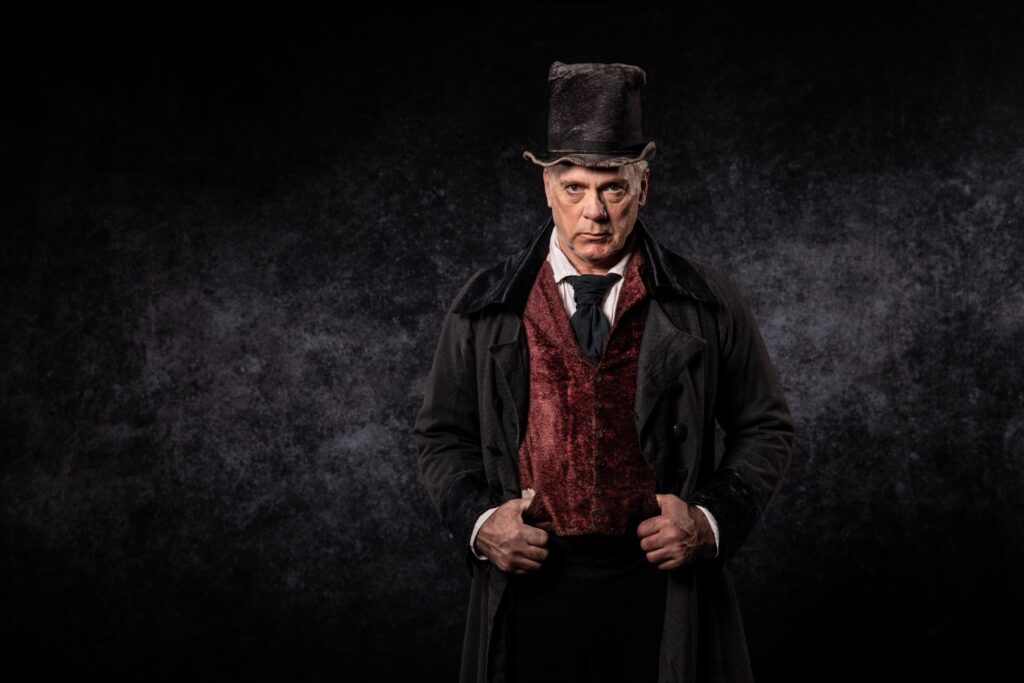“You mean, have we turned middle-aged?” laughs Dion Mills, a Red Stitch ensemble member since 2002, and one of the six cast members of Day One. A Hotel, Evening.
“We had this debate as a Company as to how it would appear to the public, us programming a work such as this but we figured that if we fall in love with a play then that is reason to do it, but we were aware that there would be a double-take when a name such as Joanna’s was alongside our own”. Rather than a grab at a broader audience base, it was Murray-Smith who first approached the company with the script in late 2010, having not shown it to any other company. How does it feel to have an internationally renowned playwright proposition one of the stalwarts of the independent theatre sector with a work as yet unseen by those who could afford more lavish sets, cast bigger names and invite A-listers to the opening night? “It took us by surprise, though we were flattered of course. And when we read the script we could hear some of our voices in the writing. I absolutely loved it.”
The choice, while anomalous, seems to be firmly rooted in the literary worth of the script and the challenges a comedy of manners presents to the ensemble. “It’s a real greyhound of a play but the good thing about comedy is you know when you’re on and you know when you’re off.”
It seems as if the comedy of manners has made a resurgence, with the likes of Oscar Wilde, Noel Coward and Joe Orton gracing the pages of season brochures nation wide. In an age when most young creatives would choose to make their mark through their radical re-envisaging of classical texts, it seems that doing a straight play, or rather, a straight comedy, may be the new post-postmodern. “There will always be a market for plays that delight in word play, it’s like a really fast game of tennis.”
Traditionally, the comedy of manners uses satirical humour to draw conclusions about its characters, hopefully reflecting a part of the audience’s class and relationship machinations. So does Day One. A Hotel, Evening carry the same sting in the tale? “It’s a kind of cross between a classic Woody Allen film and Pinter’s Betrayal. There are many different kinds of treachery in this play, it’s a group of 40-somethings all looking for something they feel entitled to…they are skating very beautifully on thin ice and they know it.”
It is this mix of quick-wittedness and real life pathos that allows scripts like Day One to strike a chord in its unassuming audience. As Oscar Wilde said, “If you want to tell people the truth, make them laugh, otherwise they’ll kill you.” This is sage advice in a time when we have as much to hide from ourselves as the ones we’re with. Day One deals with the couplings of a group of friends, the affairs and dalliances that are tolerated in order to keep the facade of domestic bliss. Things get complicated when a younger twenty-something couple become embroiled in the quintuplet and make for an uneasy sextet. Far from simple voyeurism into the sexual lives of others, Day One is an understanding portrait of the complications of relationships in a modern world. “It’s both a flattering image and an indictment. The audience will see themselves with heir faults, just being wittier than they are.”
As the play’s opening night looms and 2011 begins to get its tinsel together for the end of year festivities, can we expect a more grown up approach to Red Stitch programming in the future? “Our 2012 season will be announced on Tuesday November 29 and of the four plays we’ve chosen, three are ‘traditional Red Stitch’ in that they’re weirder but there’s one that’s more mainstream, though we’ve worked with that playwright before.” So no Williamson then. Phew. It’s unfortunate that a name such as Murray-Smith carries the same negative connotation, that what is popular cannot be good. Red Stitch has created a legacy through their careful selection and presentation of scripts that otherwise would remain in in-trays gathering dust instead of recognition. They have premiered plays that have gone on to be presented by state companies, priming the audiences for the future trends in theatre and engendering new audiences to stick with the “limping beggar of art” (a pretty apt though not so glamorous term for theatre). So when Dion assures me “the quality of the writing is terrific”, I think it’s safe to say, he knows what he’s talking about. “I know that there will be prejudice against it but I think we’ll be able to pull it off and do it justice, and it deserves justice.”







